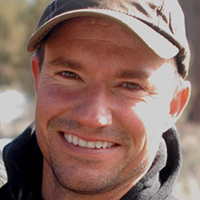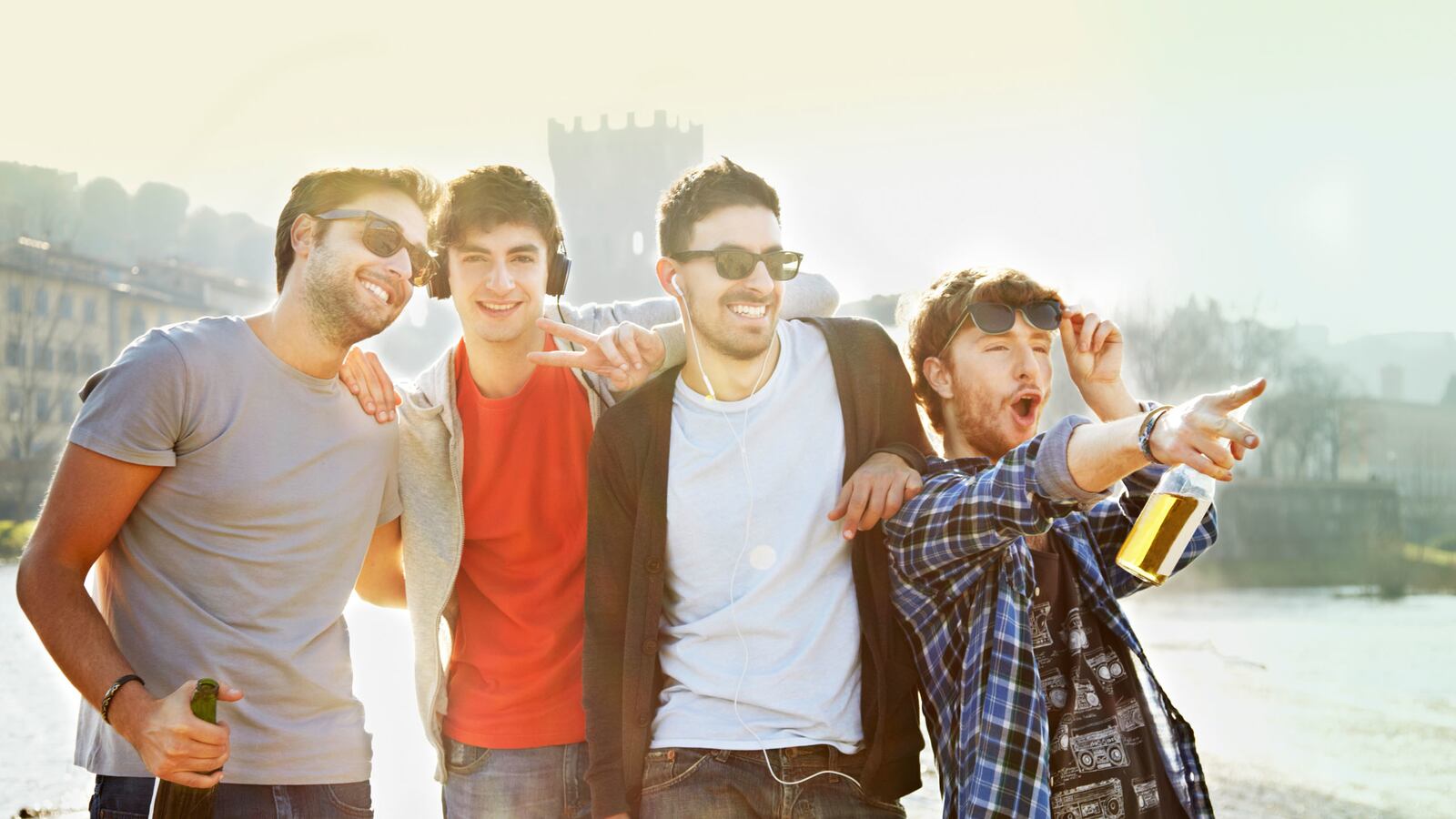When I was in my mid-twenties, I made a mistake that seems unimaginable to me now. I went to a Halloween party at the home of a black guy I’d recently met…in blackface.
Such was the depth of my white privilege that it had not occurred to me that my makeup was problematic. There was a reasonable explanation for my costume, to be sure; but even during the time it took me to apply brown lipstick (that I had bought from the “ethnic” section of the makeup counter at Sears) over my entire face, I never stopped and thought, “Wait—this could be construed as racist!” Because I hadn’t intended it to be racist. Because I wasn’t racist.
In the context of the epidemic of white-cop-on-unarmed-black-man violence that has beset our country for the last, oh, several hundred years, flaring up again recently with the shooting of Michael Brown in Ferguson, Missouri, the notion of “white privilege” has been a thread in a lot of conversations. Things like this just don’t happen to white people. With few exceptions, they don’t get killed by police officers while trying to surrender. When they gather to express their collective displeasure with perceived injustice at the hands of the government, they don’t get swarmed by militarized police, no matter how unhinged and potentially dangerous they appear to be. It seems clear enough: White people don’t have to worry about these things. People of color do.
White privilege is a set of advantages and immunities enjoyed by white people that are not common to people of other races. From seeing ourselves represented on TV and movies, to not having to worry about being racially profiled by store security, to not being burdened with the knowledge that our kids are statistically more likely to be victims of violence, white people as a group clearly face fewer obstacles than everyone else.
And yet, White Privilege Deniers persist in grasping for any other explanation for why the white experience in this country is so much different than that of the average black person. Bill O’Reilly, for example, in his recent and by now thoroughly mocked proclamation that white privilege does not exist, blamed everything but centuries of dehumanizing, institutionalized racism for racial inequities. According to O’Reilly, black people simply need to embrace “personal responsibility” and stop being so angry.
“Privilege” is a dirty word in this country. We want to believe in the meritocracy, and, more importantly, that we are the sole proprietors of our achievements. There is legitimate pride to be taken in the hard work we have done for our moderate success (only the richest of celebrities admit that they are “lucky”) and the obstacles we have overcome; so we resist the notion that we are the benefactors of the cosmic crapshoot that made us be born the preferred color, race, sexuality, sex, etc. It diminishes our heroism in our own story.
But I’m here to tell you, fellow hardworking, non-racist white people, that it doesn’t hurt to admit you had help. Consider, for instance, your youth. Were you “an angel”? Probably not. When I was a 17-year-old high school student, driving from the Virginia suburbs to a punk show in D.C., I missed my exit. Instead of proceeding to the next exit and backtracking, I decided to go ahead and drive across the vast, grassy median and merge into traffic on the other side. When the cop who pulled me over stuck his head in the window of my parents’ conversion van, he must have been nearly knocked over by the weed smoke billowing out. And there’s no way he didn’t notice all my friends slamming cans of Old Milwaukee and stashing them behind the back seat. After delivering a quick lecture about how I shouldn’t do dumb stuff to impress my friends, he let me off with a citation for “Driving on the Grass,” and we all had a good laugh about that as we continued on our way to see our favorite straightedge band.
Would a carload of underage black kids, smoking weed and drinking while tearing up the scenic parkway on their way from D.C. to the suburbs of Virginia have gotten off that easily? Every time I run that thought experiment, it ends up with handcuffs and jail time for the black kids, if not worse.
There were many other episodes where cops, teachers, school administrators, and other authorities went easy on my white friends and me. There’s no way to know with certainty whether that had to do with race, but the statistics suggest that it did. Black students are three times more likely to be suspended from school than their white counterparts, and black men are six times more likely to be incarcerated than white men. It’s difficult to get an education and keep a family together—the keys to success according to Bill O’Reilly’s assessment—when you are kicked out of school or locked up. Sure, bad decisions and irresponsibility probably play a big part in these suspensions and incarcerations, but it’s just a part of the cycle that New York Times columnist Charles Blow describes in his rebuttal to O’Reilly’s denial of white privilege. Blow writes, “Systemic anti-black bias doesn’t dictate personal behavior, but it can certainly influence and inform it. And personal behavior can reinforce people’s belief that their biases are justified. So goes the cycle.”
If I had been a black kid doing the same stupid shit I did, and I had been kicked out, locked up, beaten, harassed, shot or shot at, and suffered the countless daily indignities people of color endure just for walking down the street or going into a store, I probably wouldn’t have seen any reason to clean up my act or my attitude, since I would still be a suspect by default. But as a white kid I was afforded every opportunity to reform and reinvent myself, so I did.
By the time I went to the Halloween party in blackface, I had graduated from a top-notch university, had my own little business, and was a solidly Progressive White Guy. I believed that white privilege was a thing and I thought of myself as down with the struggle.
My idea for a costume had been to dress like Mr. Hankey, the Christmas Poo, a character from an episode of the crazy new (at the time) animated series “South Park.” I wore brown sweats, a Santa hat, white gloves, and brown makeup on my face. When the host of the party, who was not familiar with this new TV show, confronted me about my face paint; I stammered, “No, no, you don’t understand. It’s not racist, because I’m not supposed to be a black guy. I’m a, you know…a piece…a piece…a piece of shit.” I was mortified and ended up wiping the makeup off my face as soon as I got a chance. I felt like an idiot, and couldn’t understand why I hadn’t seen this coming.
I forgot about the whole episode as quickly as I could, and didn’t think about it until years later when, with some help, I realized that my obliviousness was not of the garden variety, but rather an example of one of the most insidious aspects of white privilege. As a white person, I rarely have to worry about racial issues; and so I was able to transform myself into what looked for all the world like a minstrel in a Santa hat without ever considering the implications of a white man painting his face brown.
As James Baldwin said, “Being white means never having to think about it.” But we do need to think about it, and refusing to check our privilege prevents us from thinking about it honestly. So just try it. Acknowledging your privilege and keeping it in mind as you think about politics, pop culture, current events, and social interactions does not make you weak, and it certainly won’t kill you.





